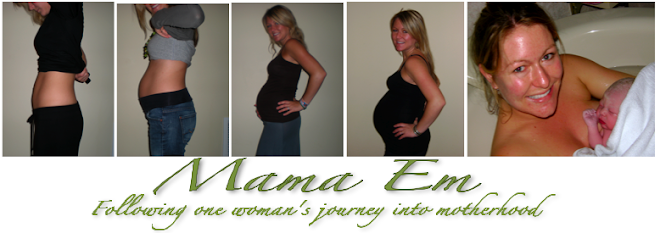Amounts vary depending on who is dishing out the advice, but pregnant women are told to drink 2-4 liters of water per day. Since contractions can be brought on by dehydration, it’s especially important to drink enough water. Now that I’m putting this much water in my body, I’m suddenly concerned with the source of my water. I have a safe (BPA- and aluminum-free) water bottle made out of stainless steel in which I store my water (I ditched my aluminum Sigg water bottle recently in favor of the Steel Works Sigg here). But what about the water that goes in my safe water bottle- is it as safe as it can get?

At home, I filter water with a Pur water filter that I fill with City of Chicago tap water. Although Chicago water meets or exceeds all safety standards, a July 14 Chicago Tribune article about safety tests conducted on Chicago water claims that “according to results posted on the city's Web site, the tests found small amounts of the sex hormones testosterone and progesterone; gemfibrozil, a prescription cholesterol-fighting drug; ibuprofen, an over-the-counter painkiller, and DEET, the active ingredient in bug spray. The tests also found caffeine, nicotine and cotinine, a nicotine byproduct, all of which researchers consider to be indicators of pharmaceuticals from human waste.” That’s scary!
So what about tap water at work? I could just fill up my water bottle there, right? But the water smells and tastes more like chlorine than the Chicago tap water does, and it’s sourced from Lake Michigan, too, so it can’t be much better- and it obviously had plenty of chlorine in it, which some studies link to formation of carcinogenic compounds. Not to mention that the chlorine makes it taste horrible.
At work, we also have a Hinkley water cooler- a solution? Not quite. Besides the environmental costs of bottling and transporting water, there's a health catch, too. The 5 gallon water bottles going into the cooler are made with #7 plastic, the same number as water bottles containing dangerous BPA. While their website doesn't say that the bottles contain BPA, it does present an argument that BPA is safe according to the FDA. Pretty ridiculous.
Once I realized that the Hinkley bottled water at work is bottled in plastic containing BPA, I started to wonder about that plastic Pur water filter sitting in my fridge. Is it safe? According to the Consumer Research website, both Pur and Brita filters do not contain BPA. Phew! When I went to check the Pur website for myself, I actually found a great surprise- according to Pur, a Pur water pitcher is able to remove 96% of pharmaceuticals from tap water. That's fantastic!
I'm now counting on my filtered tap water to be the safest option since it is supposedly BPA-free and lower in pharmaceuticals. But what a research project getting to that conclusion! Who knew pregnancy would turn me into an investigative journalist?
Bottoms up!

Great Research! I've started bringing my filtered water to work....a hassle to carry, but I feel much better drinking that than the water cooler variety. I thought I was doing it because of the fertilizers/pesticides/chlorine/flouride, but DEET and hormones and ibuprofin are a better reason! Do you have a water filter on your shower?
ReplyDeleteNope, no water filter on my shower. I'll look into that. One of the great parts about the drinking water solution was that it was so inexpensive- for the price of a Pur or Brita pitcher plus a water bottle or two, I can drink clean water for the rest of my pregnancy (under $50 total).
ReplyDelete